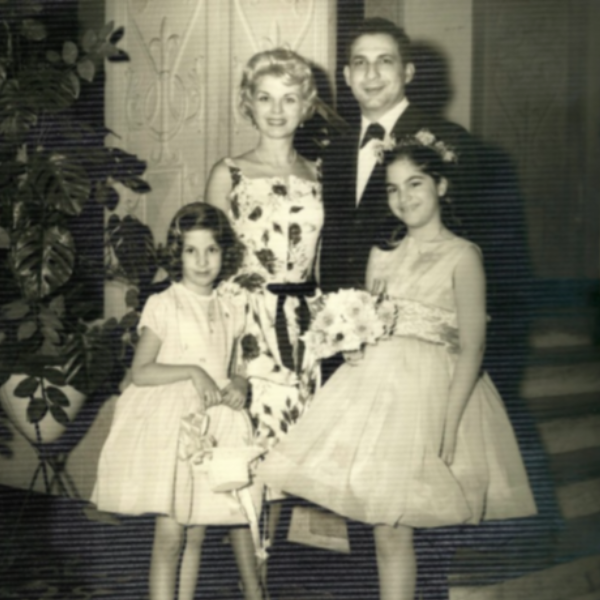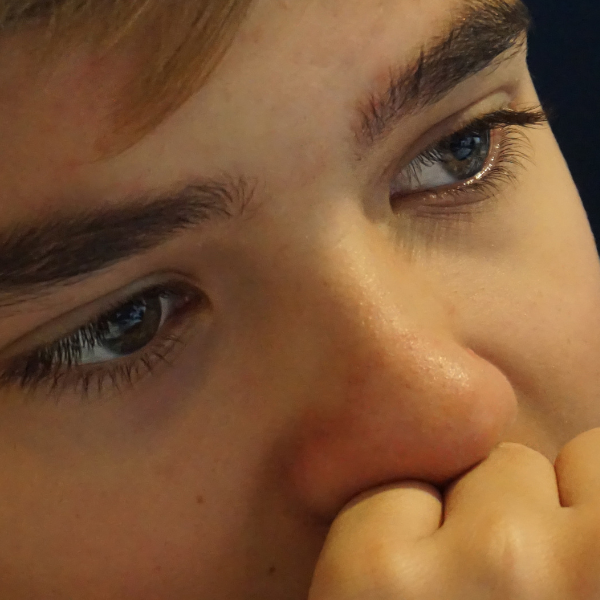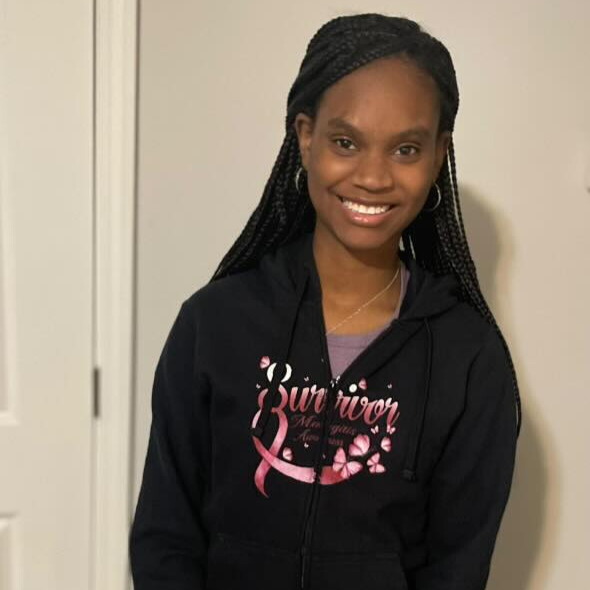by Allie Ellis
I’m Allie. I’m 63 and Scottish. I had HPV tonsil cancer. Turns out, it had been a ticking time bomb my whole adult life, but HPV-related cancer doesn’t have to overshadow the next generation if we vaccinate our young people now.
My symptoms didn’t seem alarming at first
I had tonsillitis in early 2018 and lost my voice for a week. That happened to me every winter for years, but after this bout, the swelling in my right tonsil didn’t go down. My doctor attributed this to trauma. She suggested we keep an eye on it, but said that there was no need for a tonsillectomy. My tonsil was monitored until October when my doctor examined it and recommended a referral to an ENT consultant and then, probably, oncology. I asked her what made her think it was cancer. “I can see it,” she told me.
The process of organising treatment took longer than I expected. Then the medical machine cranked up. I was diagnosed with Stage 2 HPV tonsil cancer at the beginning of November. I was advised to stop work as I had to be available for tests at short notice. I was a teacher. Talking was my job, but I was beginning to feel the strain in my throat. It took till the last week in December to start my actual treatment because there was so much to organise.
ENT consultant. Biopsy. CT scans. MRI scans. Oncologist. Dietician. Pharmacist. Phlebotomist. Targeting radiology. Mask room. Amahl, my fab support nurse. Speech therapist. Dental consultant. Tooth extraction. Radiologists. Radiotherapy. Chemotherapy. More clinical nurses and support staff than I could ever count or thank. And I know I must have missed people here.
Radiotherapy and chemo treatment
I began treatment on 17th December 2018: a radiotherapy session and then overnight cisplatin chemo at the Beatson West of Scotland Cancer Centre. I had two chemo sessions: one at the start of treatment and one three weeks later. I had 30 radiotherapy sessions, one every weekday for six weeks, but sessions stretched over seven weeks because of the Christmas and New Year holidays. I was lucky to live about 20 minutes from the hospital. My poor partner brought me in every morning at 8:00 a.m. and home again after my session before heading off to work himself. Cancer doesn’t just affect those who have it. My partner was beside himself with worry.
I wasn’t a model patient, I’m sorry to say. The dietitian and I discussed a nasal feeding tube. Well, she discussed it and I flatly refused one. I had seen patients with them and had a horror of them. My ENT consultant agreed that I’d be fine without it because, if I’m honest, I was pretty overweight and not likely to fade away. As it happened, this was the right move—but more on that later. I was similarly obstinate at Glasgow Dental Hospital upon hearing that the planned procedure was removal of all my back teeth. I had one tooth that needed to be extracted, and was happy to go along with that one extraction, but no more. Radiotherapy to the head and jaw can lead to radio osteonecrosis. Any wound to the jawbone, such as tooth extraction, won’t heal and can lead to bone death, necessitating bone graft treatment. I was still not getting my teeth extracted. I got that a bit wrong.
The side effects of treatment were painful and lasting
I was fine until the middle of January, when I developed the worst possible mucositis and my mouth became very damaged. My whole mouth was burned inside due to the radiotherapy. My throat was raw. The skin on my neck and throat and my hair were burned in a line where the radiotherapy affected them. I kept most of my hair, but looked as if I had a pretty severe undercut. About a quarter of my hair came out. A third of the rest broke off halfway, but it all grew back. My neck still looks a bit discoloured and always will. I look as if I have a swollen gland on my right side due to internal scar tissue, but it doesn’t hurt me at all.
Mucositis is the body’s defence response to trauma. It is, literally, the body producing mucus to protect damaged tissue. Internal burning sent mine into overdrive. If you enjoy throwing up, this is the one for you. Remember the feeding tube? It goes into your stomach and if you vomit it can move which isn’t good. I was told at the start that any possible movement of the tube would mean removing and reinserting the tube, followed by a 24-hour monitoring stay in hospital. This was one of the reasons I didn’t want one. I was bringing up mucus five or six times over 24 hours. With a tube, I would have been hospitalised for pretty much all of my treatment. That gastric tube would have been in and out constantly. But without a tube, I couldn’t eat normally, and lost a huge amount of weight, going from a UK size 20 to a 14 in about eight weeks.
Getting back to everyday life has been challenging
After the treatment ends, the healing starts. My mouth was in a state. I had liquid morphine to manage the pain. The nurses and dietitian were concerned by my weight loss and gave me nutritional drinks. I was dehydrated and had to have fluids before I could have my second chemo treatment. I was exhausted and emotional. By the beginning of May, I was back doing normal things like going to the shops, but I was very easily tired.
I tried going to a support group but it wasn’t for me. The people were fine; I just didn’t want to talk about cancer anymore. My employer was great. Glasgow City Council organised an occupational therapist visit and I went back to work for the month of June before the summer holidays on a special timetable. I had as much help as I needed and a voice amplifier for the classroom. The brain fog I had experienced was a bit more long lasting than I expected and working was hard. I was old enough to apply for early retirement and, after having worked mainly online during lockdown, I retired in 2021.
Cisplatin can cause kidney problems. Between drug side effects and dehydration, my kidney function dropped to 34 percent. It’s back up to about 50 percent now, but I still get it monitored.
I was advised by the Dental Hospital to use a high fluoride toothpaste and was prescribed Duraphat 5000. I still use it and it looks like I always should. I have had to have specialist dental treatment recently. The wisdom tooth next to my extracted tooth moved a few months ago and fell into the space left. It had to be extracted at the hospital because of the danger of necrosis; the procedure went well.
At five years after treatment, I have been signed off by my oncologist, ENT and the Dental Hospital. I’ve met amazing people and received great care. The worrying thing is how I would have coped if I hadn’t had the NHS to rely on. I could never have paid for this treatment and I’m sure insurance wouldn’t have covered it all.
My advice to you
Get your young people vaccinated and wipe HPV out. Over 80 percent of adults tested have this virus at some point in their lives. It is currently one of the fastest growing illnesses. HPV cancers are treatable but, as my oncologist told me, they have one of the nastiest courses of treatment in the oncology field. It’s preventable, so let’s get on it. Thank you for reading this. I wish you good health!
Allie Ellis is a retired 63 year old retired English teacher from Ayr, Scotland. Her story, like all others on this blog, was a voluntary submission. If you want to help make a difference, submit your own post by emailing us through our contact form. We depend on real people like you sharing experience to protect others from misinformation.



